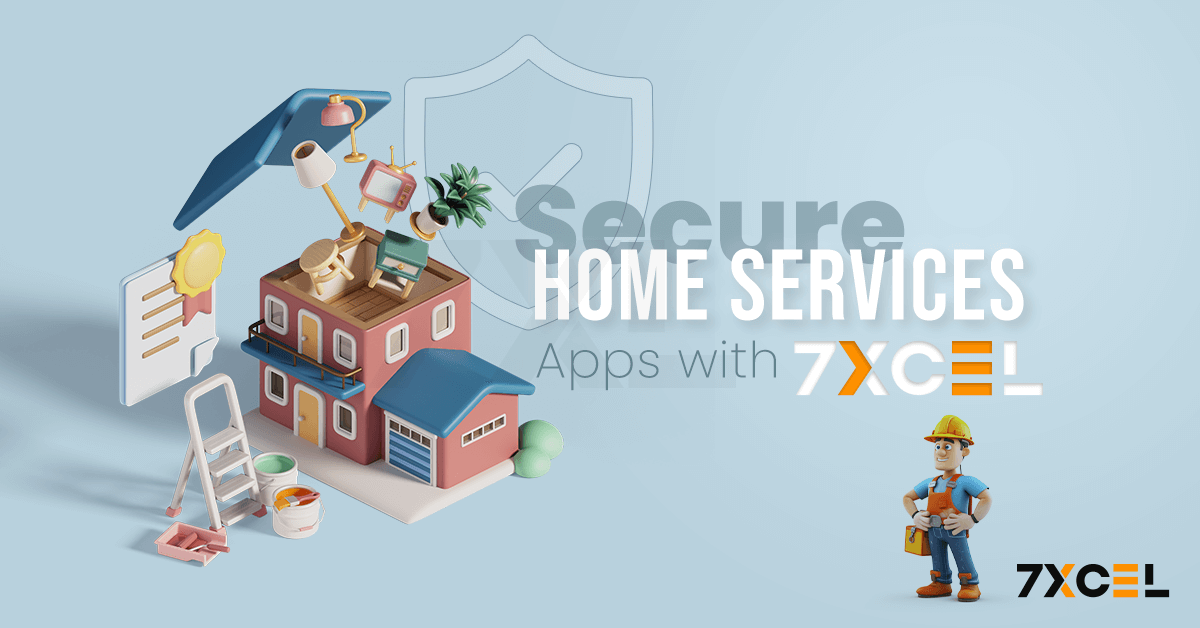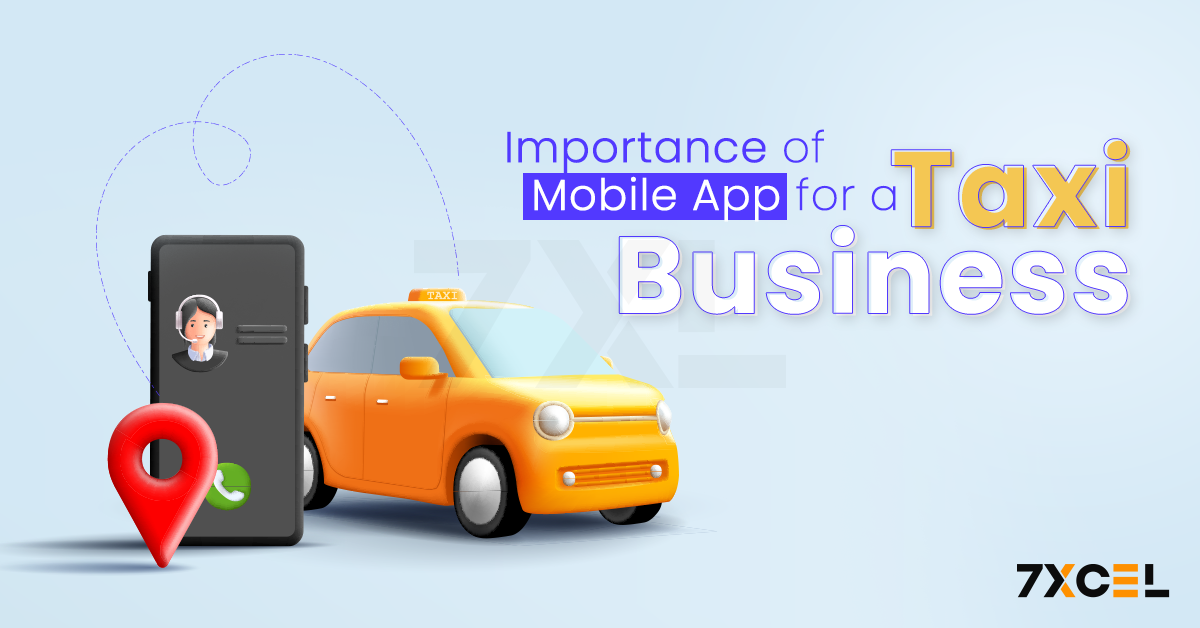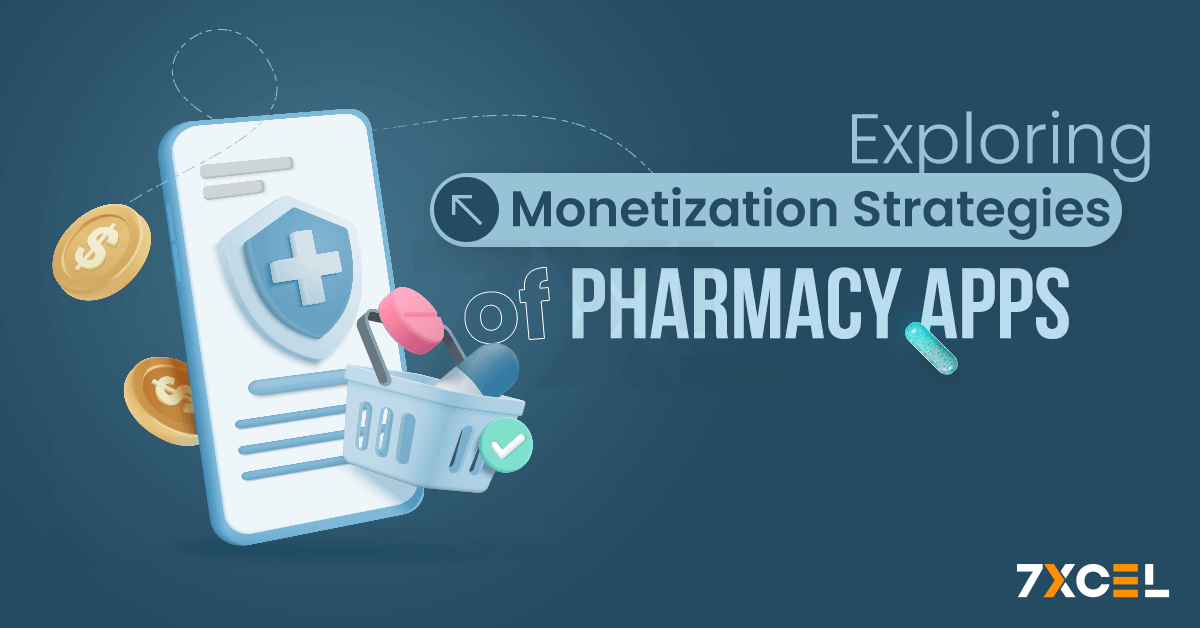Quick Summary:
Discover how to secure your home services app and gain user trust with essential strategies. Learn about protecting data, verifying service providers, and ensuring secure transactions. Read the full blog to find out how to make your home service app safer and more reliable for your users.
In this blog, we’re going to discuss📝
- The Modern Dilemma: Convenience vs Security
- Security Concerns: The Achilles heel of On-Demand Home Services
- Key Security Considerations for Home Services Apps
- Building a Fortress of Trust: 7xcel’s Secure App Development Approach
- Ensuring Compliance and Regulatory Adherence
- Security Best Practices of Your Home Services Apps
- Beyond the Basics: Building a Secure Ecosystem with 7xcel
Gone are the days of scrambling through phonebooks and relying on word-of-mouth for home repairs. On-demand apps like UrbanClap (now Urban Company) and TaskRabbit have transformed home management by allowing users to quickly arrange for skilled professionals to handle tasks like fixing leaky faucets or assembling furniture with just a few taps.
While this convenience is a significant improvement, it also introduces a critical concern: security. Inviting a stranger into your home, even one vetted by the app, can be unsettling. Therefore, establishing trust and ensuring robust security measures are essential in the on-demand home service industry. Prioritizing safety helps users feel secure and confident when accessing these services, maintaining the balance between convenience and personal security.
The Modern Dilemma: Convenience vs Security
The convenience of on-demand home services is clear. A report by Research & Marketers shows the global home services market, valued at $467.8 million in 2023, is expected to reach $8.2 billion by 2030, growing at a CAGR of 50.6%. This rapid growth highlights a shift toward consumer demand for efficiency, reliability, and, most importantly, trust in home services. Understanding the key factors behind the success of leading apps is crucial for developing a safe and effective home services app.
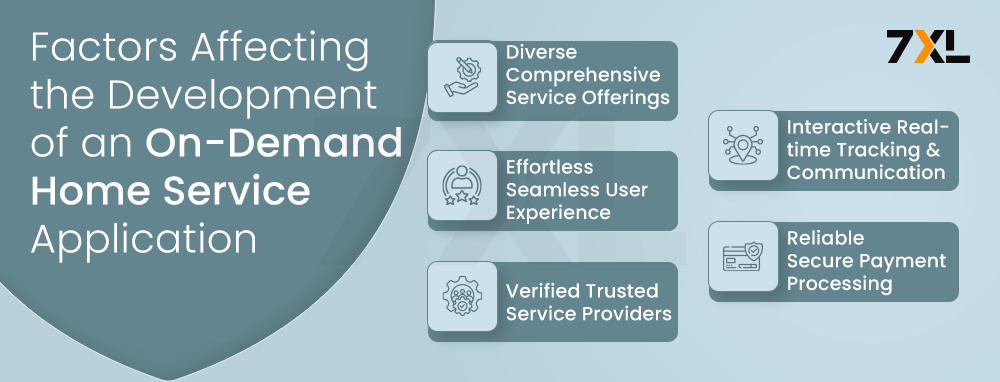
Comprehensive Service Offerings:
In order to meet their clients’ varied needs and serve as a one-stop shop for all of their home needs, Urban Company and Task Rabbit offer a wide range of home services.
Seamless User Experience:
Users can easily find, schedule, and manage their home care appointments with the help of these apps’ straightforward and user-friendly interfaces.
Trusted Service Providers:
Customers can feel confident in the caliber and dependability of the experts they employ because TaskRabbit and UrbanCompany have both implemented thorough screening and onboarding procedures for their service providers.
Real-time Tracking and Communication:
Customers can track the progress of their service requests in real-time and communicate directly with the service providers through the app, enhancing transparency and customer satisfaction.
Secure Payment Processing:
These apps have implemented secure payment processing systems, allowing customers to make seamless and hassle-free transactions.
Security Concerns: The Achilles heel of On-Demand Home Services
Despite the undeniable convenience, security concerns remain a significant hurdle for many users. A significant amount of users hesitate to use on-demand home service apps due to security anxieties. Here’s a breakdown of the primary concerns:
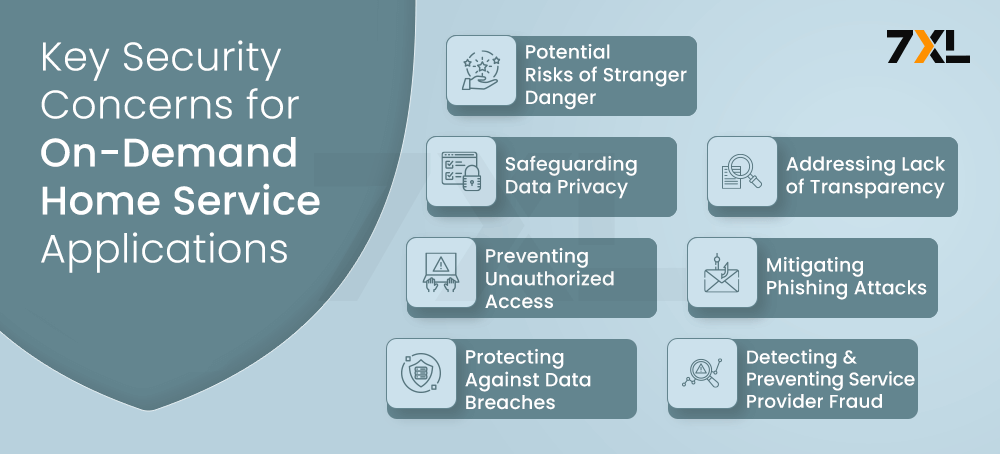
- Stranger Danger: Letting a stranger, even a background-checked professional, into your home can be a source of anxiety.
- Data Privacy: Users worry about the security of their personal information and payment details stored within the app.
- Lack of Transparency: Concerns arise about the verification process for service providers and the potential for fraudulent activity.
- Unauthorized Access: Weak app security can expose personal data & home systems to unauthorized access, leading to significant privacy risks for homeowners.
- Phishing Attacks: Phishing attacks can trick users into providing sensitive information or downloading malware, leading to compromised accounts and identity theft.
- Data Breaches: Inadequate data protection can expose users’ personal and financial information, leading to financial loss and identity theft.
- Service Provider Fraud: Without rigorous verification, fraudulent providers may exploit the platform, risking harm or theft; thorough checks and ongoing monitoring are essential.
These anxieties are valid and pose a significant barrier to user adoption in the on-demand home service industry. Companies that prioritize robust security measures and cultivate a culture of trust will be the ones to thrive in this competitive market.
Key Security Considerations for Home Services Apps
Prioritizing data privacy and security is essential while developing a home services app in order to win over your users’ trust and faith. You should take into account the following important security factors:
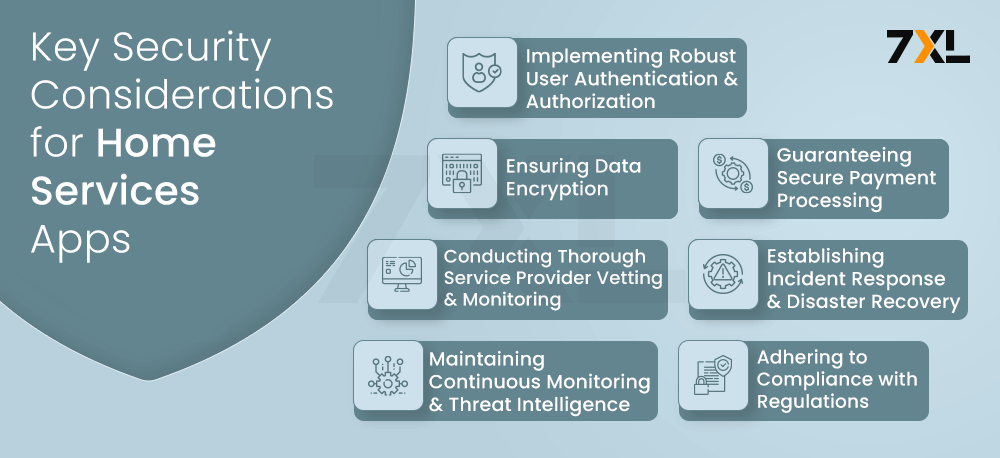
User Authentication and Authorization:
In order to stop unwanted access to client accounts and sensitive data, implement strong user authentication methods like biometric verification and multi-factor authentication.
Data Encryption:
Ensure that all customer data, including personal information, service requests, and payment details, is encrypted using industry-standard encryption protocols to protect against data breaches.
Secure Payment Processing:
Integrate with PCI DSS-compliant payment gateways to handle financial transactions securely and comply with industry regulations.
Service Provider Vetting and Monitoring:
To guarantee the security and dependability of the experts you get on board, establish a rigorous screening procedure for service providers that includes reference checks and background checks.
Incident Response & Disaster Recovery:
Develop a thorough incident response plan and robust backup and disaster recovery strategies to quickly detect, contain, and recover from any security incidents or system failures.
Continuous Monitoring and Threat Intelligence:
Implement continuous monitoring solutions & stay informed about the latest security threats and industry best practices to proactively identify and address potential vulnerabilities.
Compliance with Regulations:
Ensure that your app’s data handling and privacy practices comply with relevant regulations, such as the General Data Protection Regulation (GDPR) and the Health Insurance Portability and Accountability Act (HIPAA), to maintain user trust and avoid legal issues.
Building a Fortress of Trust: 7xcel’s Secure App Development Approach
7xcel understands the delicate balance between convenience and security in the on-demand home service industry. Beyond just coding a functional app, partnering with a specialized Home Service App Development Company like 7xcel ensures the creation of a secure and reliable platform that fosters user trust.
Their expertise in integrating advanced security measures, such as encrypted transactions and secure user authentication, helps build a home service app that users can confidently rely on. Here’s how 7xcel assists in developing a secure and trustworthy home service app:
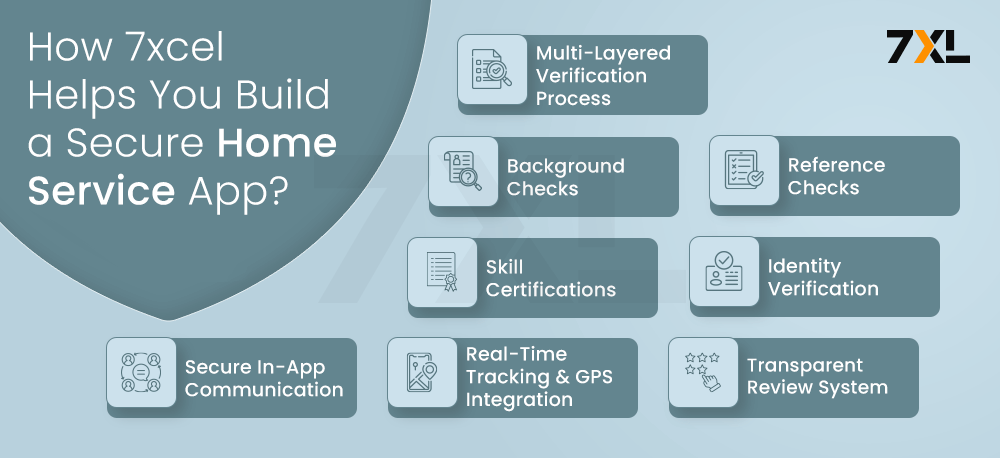
Multi-Layered Verification Process:
The cornerstone of a secure home service app is a robust verification system for service providers. 7xcel helps you implement a multi-layered approach that may include:
Background Checks:
Partner with reputable background check companies to verify the service provider’s criminal history and identify potential red flags. Consider offering different levels of background checks (basic, comprehensive) as a premium service for users seeking an extra layer of assurance.
Reference Checks:
Contact previous clients of the service provider to verify their skills, work ethic, and professionalism.
Skill Certifications:
Require service providers to demonstrate their qualifications through relevant certifications or licenses.
Identity Verification:
Implement a secure identity verification process using government-issued IDs to ensure the service provider is who they claim to be.
Secure In-App Communication:
Eliminate the need for exchanging personal phone numbers by facilitating secure in-app communication between users and service providers. This ensures all communication is documented within the app for reference and potential dispute resolution.
7xcel can integrate various communication features such as secure in-app messaging, voice calls, or even video chat options (with user opt-in/out functionality) to cater to different user preferences.
Real-Time Tracking and GPS Integration:
Provide real-time tracking of service provider arrival times, offering users peace of mind and transparency throughout the appointment process.
7xcel can seamlessly integrate GPS functionality into your app, allowing users to track the service provider’s location on a map and estimate their arrival time. This feature not only enhances user comfort but also deters potential fraudulent activity.
Transparent Review System:
Encourage user reviews and feedback to build trust and establish accountability. A transparent review system allows users to make informed decisions by reading about the service provider’s experience, work quality, and professionalism. 7xcel can create a user-friendly review system for your app with features like rating scales, written reviews, and reporting options. This empowers users to make informed decisions and motivates service providers to maintain high service standards.
Apart from this it is also important that your on-demand home service app is adhering to the required compliances. In the next, section there is the breakdown for the compliance that you need to keep in mind while developing your on-demand home service application.
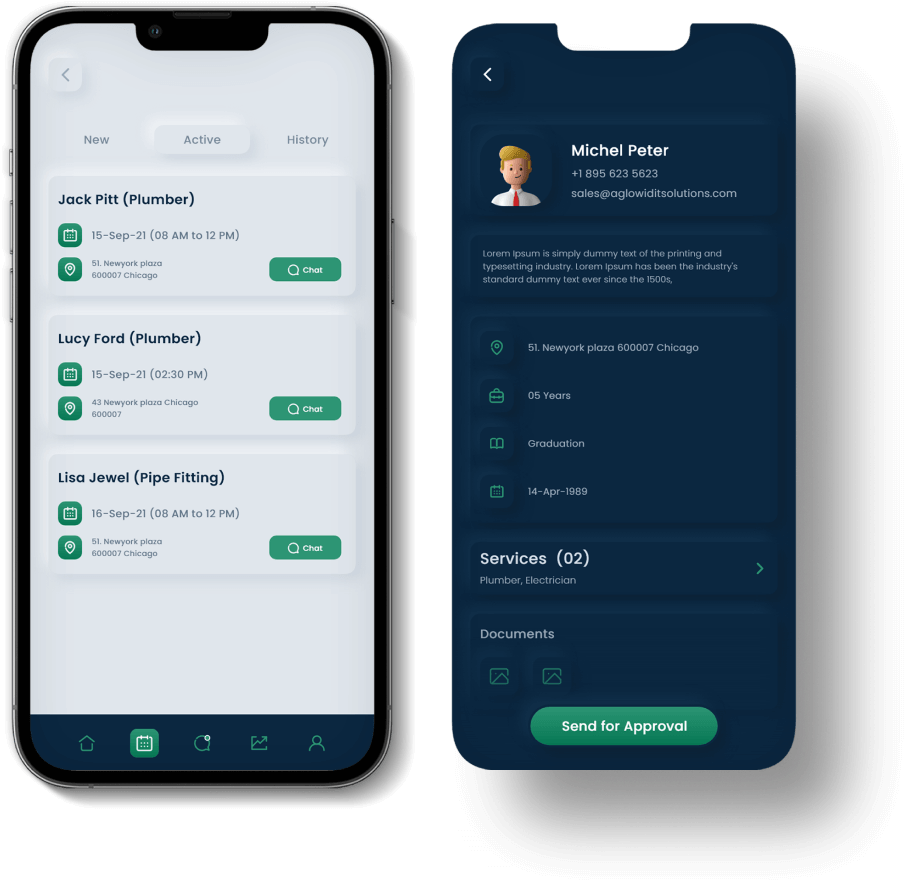
In Need of Home Services App Development Solutions?
Opt for custom on-demand home services app development services from 7xcel
Ensuring Compliance and Regulatory Adherence
Your home services app’s long-term security and success depend on its adherence to all applicable laws and industry standards. Some important compliance factors are as follows:
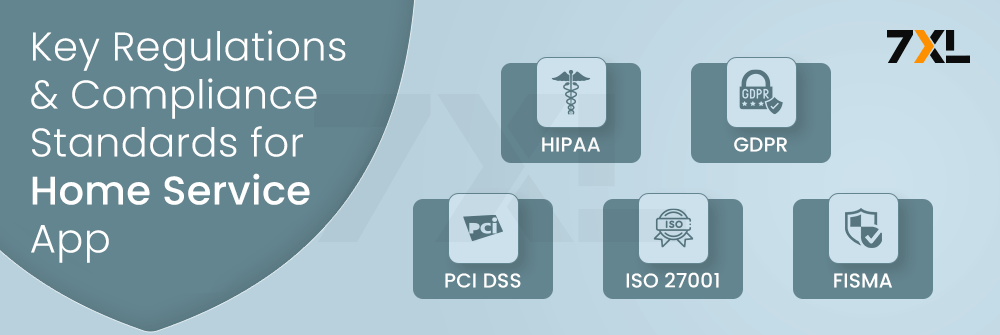
General Data Protection Regulation (GDPR):
Make sure that your app’s data handling and privacy practices comply with the GDPR, which regulates the collection, storage, and processing of personal data for individuals in the European Union.
Health Insurance Portability and Accountability Act (HIPAA):
If your app involves the handling of sensitive health information, such as medical records or personal health data, you must comply with the HIPAA regulations to protect the privacy & security of the information.
Payment Card Industry Data Security Standard (PCI DSS):
Adhere to the In order to safeguard your clients and your company from financial fraud and data breaches, you must comply with PCI DSS rules for the secure processing and storage of credit card data.
ISO 27001:
To improve customer trust and show that you are committed to strong security measures, make sure your security processes are in line with the ISO 27001 standard, which is the international standard for information security management.
Federal Information Security Management Act (FISMA):
If your app handles financial data or interacts with government agencies, you may need to comply with the FISMA regulations to meet the security requirements of federal organizations.
By addressing these compliance requirements and implementing the necessary security measures, you can build a home services app that not only meets industry standards but also instills confidence in your customers and protects your business from potential legal & financial risks.
Security Best Practices of Your Home Services Apps
To get the most out of your home services app while maintaining security, consider the following security best practices tips:

- Regularly Update the App: Always make sure that you are using the latest version of the app to benefit from new features & security enhancements.
- Use Strong, Unique Passwords: Protect your account with strong passwords and change them periodically.
- Enable Two-Factor Authentication (2FA): Your account will become even more secure as a result, making it difficult for unauthorized individuals to access it.
- Monitor Account Activity: Regularly monitor your account for any unusual activity and report it immediately.
Beyond the Basics: Building a Secure Ecosystem with 7xcel
At 7xcel, we understand that security is an ongoing process, not a one-time fix. We offer comprehensive security measures that go beyond the core features mentioned above:
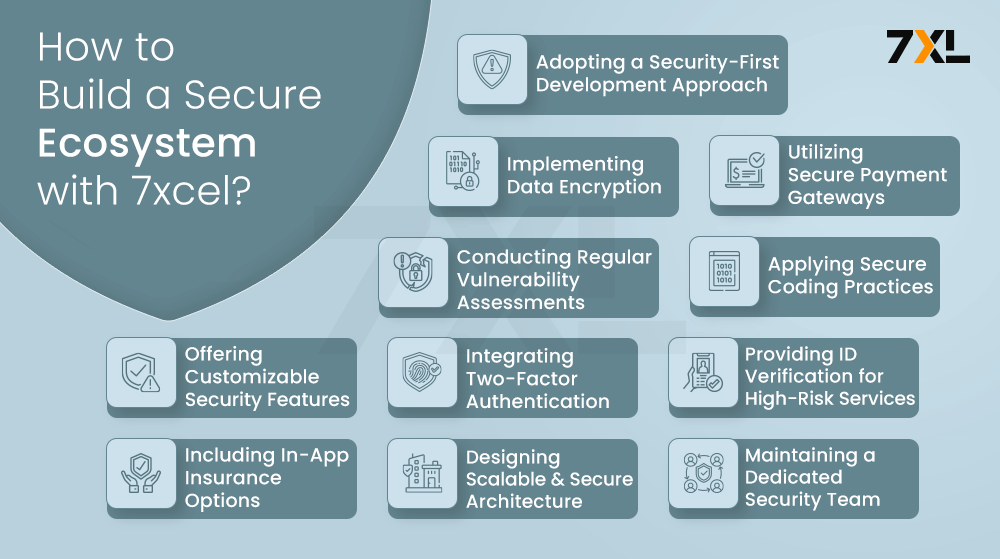
Security-First Development Approach:
Security is embedded in every stage of the development process with 7xcel. We prioritize industry-standard security practices such as:
Data Encryption:
All user and service provider data, including personal information, payment details, and communication history, is encrypted at rest and in transit using robust encryption algorithms.
Secure Payment Gateways:
To enable secure and dependable financial transactions within the app, we connect secure payment gateways that adhere to the financial Card Industry Data Security Standards (PCI DSS).
Regular Vulnerability Assessments:
To find and fix any possible security flaws in the app, 7xcel regularly performs vulnerability analyses and penetration tests.
Secure Coding Practices:
As a precaution against vulnerabilities emerging during development, our developers adhere to secure coding standards.
Customizable Security Features:
We understand that security needs may vary depending on the specific services offered by your app. In order to tailor new features that meet your specific security needs, 7xcel works directly with you to fully understand them. Think of characteristics such as:
Two-Factor Authentication (2FA):
Provide an additional degree of protection by mandating that, in addition to a password, users and service providers authenticate their identities using a one-time code that is delivered to them by email or SMS.
ID Verification for High-Risk Services:
For services that involve access to sensitive areas of the home (e.g., safe installation, key duplication), implement a mandatory ID verification process at the service provider’s doorstep using a government-issued ID and a secure scanning system within the app.
In-App Insurance Options:
Partner with insurance providers to offer optional in-app insurance plans that protect users against potential damages or accidents during service appointments.
Scalable and Secure Architecture:
As your user base grows, your app needs to keep up without compromising security. 7xcel designs apps with a scalable architecture that ensures smooth performance and continued security. We utilize secure cloud infrastructure and implement robust load balancing techniques to handle increased user traffic without compromising data security or system uptime.
Dedicated Security Team:
Our team of security experts is dedicated to staying ahead of evolving cyber threats. We constantly monitor the latest security trends and update our development practices accordingly. You’ll have access to ongoing support and guidance throughout the development process and beyond.
Conclusion
Building a successful and secure home services app requires a strategic approach that balances innovative features, seamless user experience, and robust security measures. By understanding the market landscape, addressing key security considerations, and implementing effective monetization strategies, you can create an app that not only replicates the success of industry leaders like Urban Company and TaskRabbit but also sets a new standard for security and customer trust in the home services industry.
